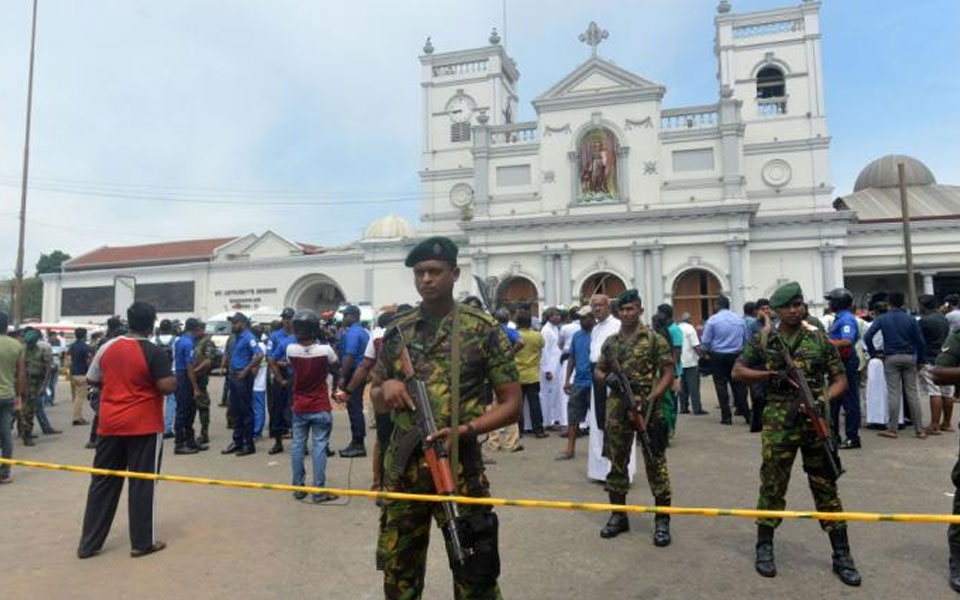Colombo: An improvised pipe bomb discovered close to Colombo's main airport was successfully defused by the Sri Lanka airforce, police said.
A police source told AFP that a "homemade" pipe bomb had been found late Sunday on a road leading towards the main terminal, which remains open with heavy security after Easter Sunday's deadly bomb attacks.
"It was a homemade bomb, with explosives put into a pipe," said the source. Airforce spokesperson Group Captain Gihan Seneviratne said the IED was believed to be locally manufactured.
The discovery comes after a series of eight devastating bomb blasts ripped through high-end hotels and churches holding Easter services, killing at least 207 people, including dozens of foreigners.
"It was a crude six-foot pipe bomb that was found by the roadside," an air force spokesman said. "We have removed it and safely defused it at an air force location."
There were disruptions to flights, but Sri Lanka's national carrier Sri Lankan has already asked leaving passengers to report to check-in counters at least four hours prior to departure because of tight security checks at the Bandaranaike International airport.
The apparently coordinated attacks were the deadliest to hit the country in the decade since the end of a bloody civil war that killed up to 100,000 people and evoked painful memories for many Sri Lankans.
Let the Truth be known. If you read VB and like VB, please be a VB Supporter and Help us deliver the Truth to one and all.
Dubai: Smoke was seen rising from an area near the United States Consulate in Dubai, according to witness accounts cited by Reuters.
There was no immediate official confirmation on the extent of damage or whether there were any casualties in the incident.
Earlier, the US embassy in Riyadh, Saudi Arabia’s capital, was also attacked. Authorities reported damage to the premises, but no casualties were recorded.
The developments come amid heightened tensions in the region, with Iran continuing to target US interests in the Middle East following deadly attacks launched on Saturday by Israel and the United States.
Near US embassy in Dubai pic.twitter.com/z5VTZNVxNO
— Sahil Shah (@thesahilsshah) March 3, 2026





